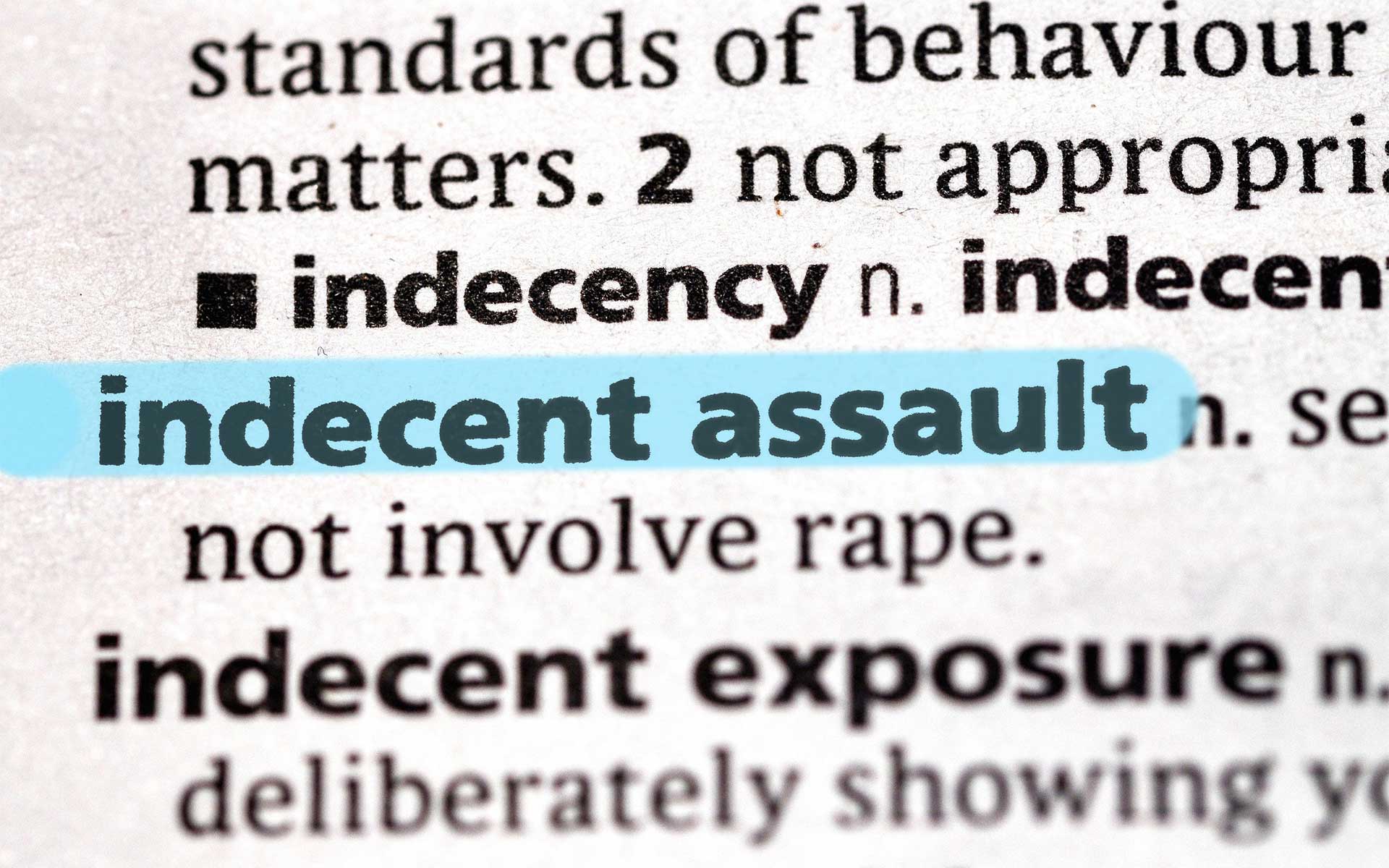
Laws are designed to protect people from physical, monetary, and emotional harm. However, until recently, Texas lacked a specific statute addressing unwanted physical contact that didn’t rise to the level of sexual assault. To fill this gap, the Texas Legislature introduced the offense of Indecent Assault in 2019, providing legal protection for victims of non-consensual physical advances, such as groping or touching intimate parts, without requiring proof of more severe sexual misconduct.
While this indecent assault Texas law offers important safeguards for victims, it also raises serious legal implications for those accused, underscoring the need for a strong criminal defense when facing these charges. In this blog, we are reviewing indecent assault charges, how they differ from sexual assault, the legal processes, penalties, and more.
Indecent Assault vs Sexual Assault
What is indecent assault? In Texas, the indecent assault definition covers any unwanted or non-consensual sexual contact or behavior imposed upon an individual, like groping. While it falls under the broader category of sexual offenses, it is distinct from sexual assault and is legally defined in Texas Penal Code 22.012 to include:
- Touching the anus, breast, or any part of the genitals of another person
- Touching another person with the anus, breast, or any part of the genitals of another person
- Exposing or attempting to expose another person’s genitals, pubic area, anus, buttocks, or female nipple
- Causing another person to come into contact with the blood, semen, vaginal fluid, saliva, urine, or feces of any person.
What makes these actions a crime is the lack of consent and the intent behind them. Under Texas law, indecent assault occurs when the alleged act is non-consensual and committed with the intent to arouse or gratify the sexual desire of the perpetrator or another person. This includes situations where the victim is unable to consent due to age, intoxication, mental incapacity, or coercion. However, unlike sexual assault, which is a felony, indecent assault does not require penetration or force but still involves unwanted sexual contact.
Although indecent assault is considered a lower-level offense under Texas sexual assault laws, it is still considered a sex crime and will require a strong sex crime defense when facing prosecution.
September 2019, From Class C to Class A
Before September 2019, Texas was one of six states that lacked a law specifically addressing groping or other non-penetrative unwanted sexual acts. At the time, an offense was only considered a crime if it involved sexual penetration or if the victim was under 17 years old. This legal gap meant that someone who, for example, grabbed another person’s breasts in a public park would likely face only a Class C misdemeanor charge for assault by offensive contact, which was punishable by a $500 fine with no possibility of arrest or jail time.
Recognizing the need to close this loophole, the Texas Legislature enacted a new law, Penal Code 22.012, elevating indecent assault to a Class A misdemeanor, which carries harsher penalties and reflects the seriousness of non-consensual sexual contact. Furthermore, in 2023, provisions for a felony enhancement were added when specific circumstances applied, including:
- If the defendant has a prior conviction for indecent assault, or if the defendant is a health care or mental health services provider who committed the offense during the course of providing treatment or services to the victim, and the act was beyond the scope of generally accepted practices, it is enhanced to a State Jail Felony.
- If the defendant has been previously convicted of indecent assault under the circumstances involving a health care or mental health services provider as described above, a Third Degree Felony enhancement applies.
Consequences of Losing an Indecent Assault Case

A convicted Class A misdemeanor indecent assault charge means the defendant could face up to $4000 in fines and up to a year in jail time. An indecent assault charge enhanced to a State Jail Felony can result in spending 180 days to 2 years in state jail and paying as much as $10,000. In cases where a Third Degree Felony enhancement applies, the victim can face 2 to 10 years of prison time and fines up to $10,000.
However, unlike most other convicted sexual assault charges, an indecent assault conviction or a deferred adjudication is not a criminal offense requiring registration with the Sex Offender Registry.
Indecent Exposure and Public Lewdness
Often, the prosecution may try to stack additional charges to strengthen indecent assault cases or increase potential penalties. In this scenario, two common charges often pursued alongside indecent assault include public lewdness and indecent exposure. When this occurs, prosecutors may try to pressure the defendant into accepting a plea deal or facing more severe consequences if convicted. This makes it crucial for anyone facing indecent assault charges to have a strong legal defense to challenge any overreach by the prosecution.
Statute of Limitations for Indecent Assault in Texas
A statute of limitations is the legal time limit within which criminal charges must be filed. Once this time period expires, the case cannot be prosecuted or pursued in court except on rare occasions. The statute of limitations for misdemeanor-level indecent assault cases is two years, and for felony-level indecent assault cases, it is three years.
The Court Process of Indecent Assault Charges
If an indecent assault case goes to trial, the State must prove the defendant’s guilt beyond a reasonable doubt. To build their case, prosecutors call witnesses to testify, typically one or more police officers and the accuser, who is required to testify under the Confrontation Clause of the Sixth Amendment.
The trial process begins with jury selection, which is more about eliminating biased jurors rather than choosing ideal ones. Potential jurors may be dismissed due to biases favoring either side or for strategic reasons. Once a six-person jury is finalized, both the prosecution and defense will deliver opening statements outlining their arguments.
The core of the trial is witness testimony. The accuser must testify, and law enforcement officers involved in the case will likely take the stand. After the State presents its case, the defense has the opportunity to call its own witnesses. Once all evidence has been presented, the judge instructs the jury on the applicable laws they must follow when deliberating. Closing arguments then take place, and the jury retires to the deliberation room to reach a verdict.
Experienced Indecent Assault Lawyer Services
Facing an indecent assault charge can be frightening, even confusing, in some cases. However, the experienced criminal defense attorneys at GHC Law Firm in Austin, TX, can help you confidently navigate the charges and aggressively protect your rights with an effective and efficient defense.
Contact GHC Law for a
Legal Consultation today
GET IN TOUCH
Indecent Assault FAQ
What is indecent assault?
Indecent assault in Texas involves non-consensual sexual contact, such as groping or touching intimate areas, with the intent to arouse or gratify sexual desire.
What is aggravated indecent assault?
Aggravated indecent assault is a more severe offense involving indecent assault that includes aggravating factors like the use of force, the victim’s age, or the defendant’s criminal history.
Is groping sexual assault?
Groping can be considered indecent assault under Texas law, but it is not always classified as sexual assault unless it involves penetration or more severe actions.
What is indecent assault and battery?
This generally refers to non-consensual touching or sexual contact combined with the act of battery (physical harm or offensive contact).


